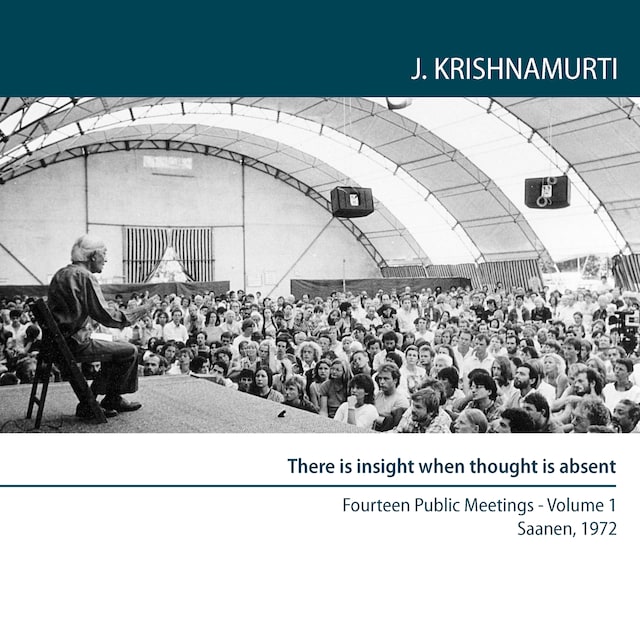
There Is insight when thought is absent
Fourteen public Meetings Saanen Switzerland 1972
Beschrijving van het boek
Public Talks 1. Can I see wholly? - 16 July 1972 Duration: 71 minutes • Do we act casually, expecting division to end as a result of outer environment? • Does change demand immediate attention and action? • Freeing of the mind from conditioning and in that freedom bringing about a cooperative action. • Can one who is conditioned by the past change totally? • Will change come through analysis or is there a totally different approach? • Is time needed to have relationship in which there is love and not division? • Does one of the many fragments of the 'me' assume authority or is the mind free to look? • Observation not investigation. • Is there analysis if there are no parts? Is analysis a waste of time? Questions from the audience followed the talk. 2. What is it to be creative? - 18 July 1972 Duration: 76 minutes • Not being deeply creative we escape from the fact of deep frustration. • Is there insight only when the mind is free of belief? • Insight without conclusion is creative action. • Why does thought draw conclusions from insight and cling to the structure of control? • I am isolated when I resist. Is aloneness insight into isolation? • Moving in insight, relationship changes. • Freedom from images is responsibility and love. • The brain needs security to function. There is security in insight, which brings intelligence. • When you don't compare, what are you? Questions from the audience followed the talk 3. Thought and its limitations - 20 July 1972 Duration: 85 minutes • Can thought investigate something which is not of time, experience and knowledge? • What is the mind that can enter into the dimension which has no word? • Can there be a harmony in which division does not exist between the known and freedom from the known? • Is the mind such a slave to words that it cannot see the movement of thought without the word? • Will knowledge bring about a better world when used with the 'me'? • When the body dies what happens to thought? • If I am aware that I am neurotic, in that awareness am I neurotic? Questions from the audience followed the talk 4. Can the mind be totally unconditioned? - 23 July 1972 Duration: 84 minutes • Society, culture and economic divisions have created images in us. • Can the deep hurts of the mind be wiped away so that no mark is left? Will this be done through analysis? Who is analysing? • Is hurt a problem if you do not move away from it? • Does conflict destroy the brain? • Is comparison an escape from 'what is'? • Am I the word, the description, the thought? If I don't compare, what am I? • Wanting to cross to the other side of the river becomes a problem. Questions from the audience followed the talk 5. Will the discovery of the cause of suffering end it? - 25 July 1972 Duration: 83 minutes • Is sorrow ignorance of oneself? • How does one go beyond loneliness? • Can thought as measurement put an end to itself? • When belief is threatened there is fear. • Can the brain have security in which every form of fear has come to an end? • Can the mind realize there is no security in the things that thought projects? • The perception of truth is security. • Can the mind invite joy? • Can one help another in crisis? Questions from the audience followed the talk 6. Pleasure, joy and death - 27 July 1972 Duration: 92 minutes • Does the mind have any existence apart from the thing to which it is attached? • Why does the mind act from a series of conclusions of thought? • How can I love you if I am attached to you? • What is the actual activity of the structure of memory which is the past? • Can the mind have an insight into conditioning and therefore tremendous energy to change it? • How do I communicate love without the word? • Is there anything permanent beyond death? Questions from the audience followed the talk 7.


